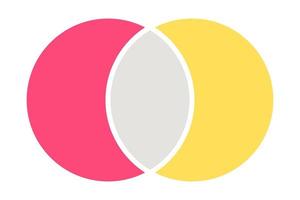I tend to think of the prevailing state of the world as being a situation where humanity is in the chaotic process of transitioning between two paradigm bubbles.Alexis Jacobi wrote: ↑Tue Oct 04, 2022 1:47 pmBy "contemporary events" I refer to the entirety of the present social and political conditions which go on, with increasing intensity, all around us. There is not one person writing on this forum who agrees with any other person at a fundamental level. Each person, each perspective, seems atomized and instead of it being possible to forge alliances or build bridges, what goes on here is 'idea-war'. Now, all around us the heat and the intensity builds and 'toning it down' is no part of anyone's modus operandi. So my view is that when fundamental disagreements become manifest at this level it is *war* that is the next step. But I am not necessarily saying that I desire that war be avoided.seeds wrote: ↑Fri Sep 23, 2022 6:51 pmPerhaps you haven't yet spoken with the right person about such issues. So, what "contemporary events" are you talking about? And how are they breaking-down the possibility of metaphysical agreements?Alexis Jacobi wrote: ↑Thu Sep 22, 2022 3:47 pm As well, no one even seems interested in discussing and analyzing contemporary events in the light of the break-down in the possibility of metaphysical agreements.
What I mean is that we are in the process of moving out of the "old (material/spiritual) paradigm"...
(which is a general state of mind [a general level of consciousness] that humanity has functioned at for the last several millennia)
...and into a "new paradigm bubble" (a higher level of consciousness) that has not only been initiated by the discoveries in quantum physics and cosmology, but also as a result of the more widespread use of mind-expanding drugs.
I'm a big fan of using visual metaphors. In which case, I suggest a Venn diagram might be helpful in understanding the reason for the problems you pointed out in your concern over "contemporary events"...

The bubble on the left represents, again, the "old (and crumbling) paradigm" which once maintained a tenuous (but tolerable) balance between science and religion.
In other words, until fairly recently, science and religion somehow managed to get along with each other (at least to a limited degree).
The old paradigm, of course, contains all of the mythological nonsense that forms the numerous (and incompatible) religions of the world, which are, themselves, like smaller (mutually repellent) bubbles held within the greater bubble of the old paradigm.
However, due to the expanding population and globalization pushing us closer together, the incompatibility of the world's religions...
(not to mention our socio-political systems that are generally built around our religious systems)
...has us on the brink of destroying ourselves.
But that's not the problem I'm getting at with the Venn diagram.
No, the problem is that modern science and cosmology have helped to expose the utter nonsense of the old religions and is ushering in their demise,...
...which, consequently, is destroying the "glue," so to speak, that helps to bind us together in a general state of consensus (at least within the religion-based bubbles of the societies we were born into).
And that, in turn,...
(because there is nothing [no grand unifying vision] to forge an alliance around)
...is producing the "atomization" you spoke of, and is creating the middle area of the diagram, which represents the chaos and confusion that will reign until humanity's transition into a new (material/spiritual) paradigm bubble is complete.
Forgive me for mixing metaphors, but as I have suggested several times in other threads:
In other words, we need a new spiritual “mythology” that can exist in harmony with our newer and more advanced understanding of the universe.I have often portrayed the ascension of modern science (i.e., quantum physics, astrophysics, etc.) in the metaphorical terms of being like a frantically flapping butterfly wing that is in desperate need of the symmetry of its other wing (spirituality), which is still stuck in the "chrysalis" of archaic beliefs.
So, the challenge is to find a new metaphysical vision of reality that can replace all of the ancient religions in a way that not only serves the same function and purpose as the old,...
...but also, doesn't look incredulous and nonsensical from the perspective of modern science.
If we can do that, then we will finally be able to move out of that chaotic (rudderless/ungrounded/atomized) middle section of the diagram...

...and into the new paradigm bubble in which science and religion can once again maintain a tolerable co-existence.
(Continued in next post)
_______
